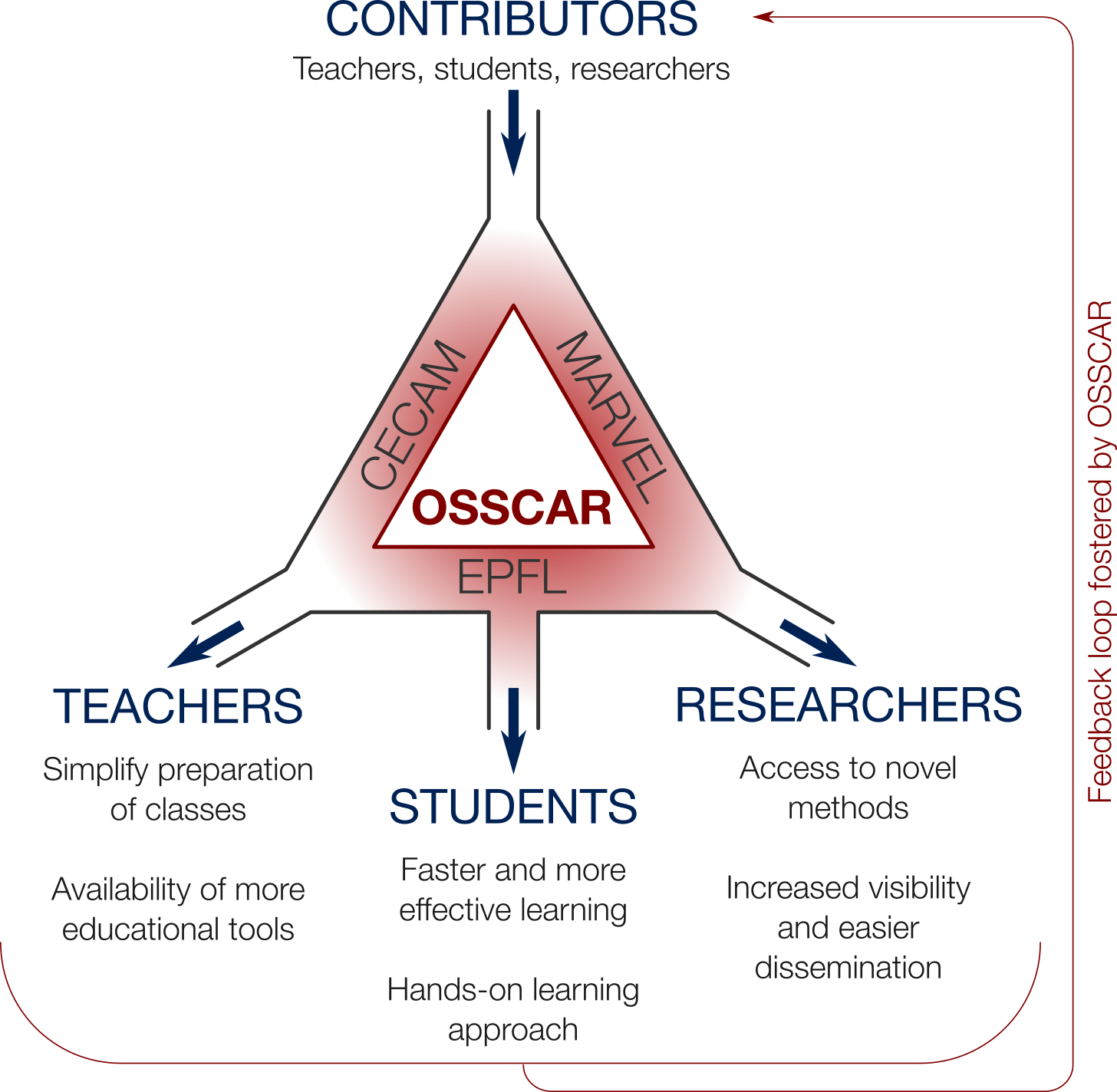The Project#
OSSCAR (Open Software Services for Classrooms and Research) provides an open-science online hub in the form of an open and collaborative platform to host software, simulation and data-analysis tools, geared towards education and research.
You can watch a 2-minute introduction to the project in the following video.
© EPFL | Video by Martin Boyer – nous.sc
There is also a recorded video of an extended webinar which gives a more in-depth overview of the project:
Further information, along with the slides used in the webinar, can be found at the event’s webpage on the CECAM website.
OSSCAR started in 2019 and is funded by the EPFL Open Science Fund until 2022.
Tools are provided as web applications, generated from Jupyter notebooks. This facilitates access to educational functionality either directly or wrapped around existing open-source simulation codes. Implementing Software-as-a-Service tools alongside interactive Graphical User Interfaces (GUIs) engenders easy development and deployment (for researchers and classroom instructors), and interaction (for students).
OSSCAR’s goal is to become a support tool for a diverse range of computational classes and research areas, both in terms of content and of easy-to-deploy models. We described the goals, objectives deliverables, along with the underlying technology of OSSCAR in the following papers (and we would appreciate if you could cite them if you use OSSCAR notebooks or technology):
